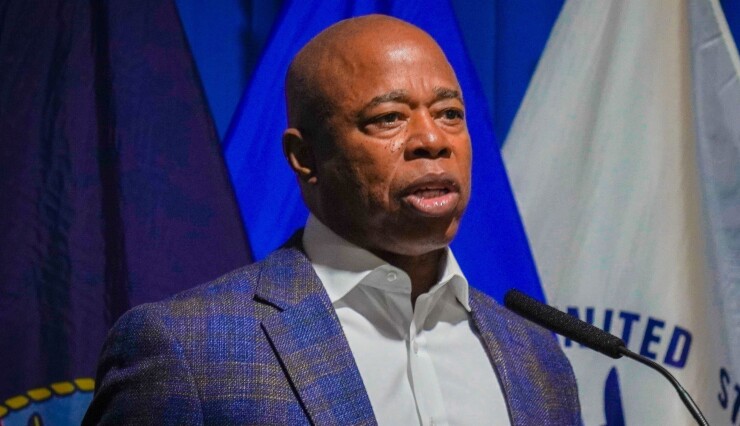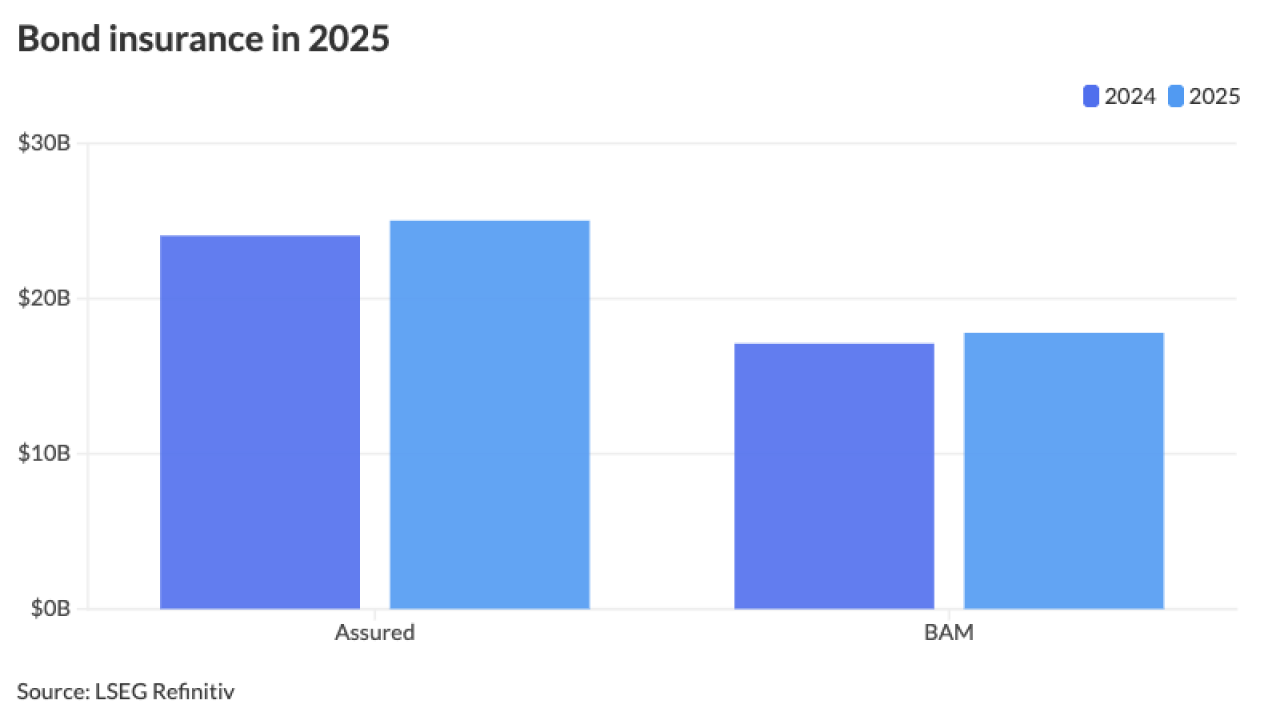New York City's budget for fiscal 2023 totals $104 billion and remains balanced, according to the November Financial Plan update released Tuesday by Mayor Eric Adams.
"Thanks to a successful Program to Eliminate the Gap, (PEG) we have achieved significant savings without service reductions or layoffs," Adams said in a statement. "We are also investing in new needs that will address our housing crisis, make our streets cleaner, combat climate change, and much more."

The mayor called PEG a success, achieving more than $2.5 billion in gap-closing savings without service reductions or layoffs over this fiscal year and the next — more than $900 million in fiscal 2023 and more than $1.6 billion in fiscal 2024. Additionally, there were additional PEG savings of $1.5 billion in fiscal 2025 and 2026.
As a result, the fiscal 2024 budget gap was reduced by more than $1 billion and is at $2.9 billion, according to
The city's budget reserves remain at a record $8.3 billion. There is $1.9 billion in the rainy day fund, $4.5 billion in the retiree health benefits trust and $1.6 billion in the general reserve, as well as $250 million in the capital stabilization reserve.
New York City Comptroller Brad Lander is urging the city to do more to bulk up its budget reserves for the retiree and the stabilization funds.
This past spring, with city coffers flush from both federal stimulus funds and unanticipated tax revenues, the comptroller's office pushed for an increase in these funds.
"We argued that the city needs long-term reserves equal to 16% of city tax revenues to weather the full length of a recession," Lander's office said in report released Tuesday. "To get there, automatic deposits should be made of at least half the difference between current-year growth of non-property tax revenues and their average growth over the previous six years (still leaving half the growth to fund expenses)."
In June, the mayor and the City Council agreed to a large deposit in the rainy day funds. Together, the revenue stabilization fund and RHBT now hold $6.538 billion, or 9.4% of the city's fiscal 2022 tax revenue.
"This is still a far cry from the 16.0% needed to weather a full recession, but it is also the largest amount that the city has set aside for a rainy day," the report said. "As the city of New York begins to prepare for the fiscal 2024 budget process, we will need to be mindful, alas, of recession risk."
The November update was released one day after New York State Comptroller Thomas DiNapoli
The update noted the growth in the fiscal 2023 budget since its adoption last July was due to the approval of federal grants, including an estimated $1 billion to fund the ongoing costs of providing shelters and other services to undocumented asylum seekers being sent to New York.
The report said new spending of $211 million by agencies in fiscal 2023 and $138 million in fiscal 2024 will be more than offset by the PEG savings. As a result, the November financial plan shows a surplus of $705 million in fiscal 2023, which will be used to lower the budget gaps in fiscal 2024.
"The city faces significant economic headwinds that pose real threats to our fiscal stability, including growing pension contributions, expiring labor contracts, and rising health care expenses," Adams said. "Fiscal discipline has been, and continues to be, a hallmark of my administration."





